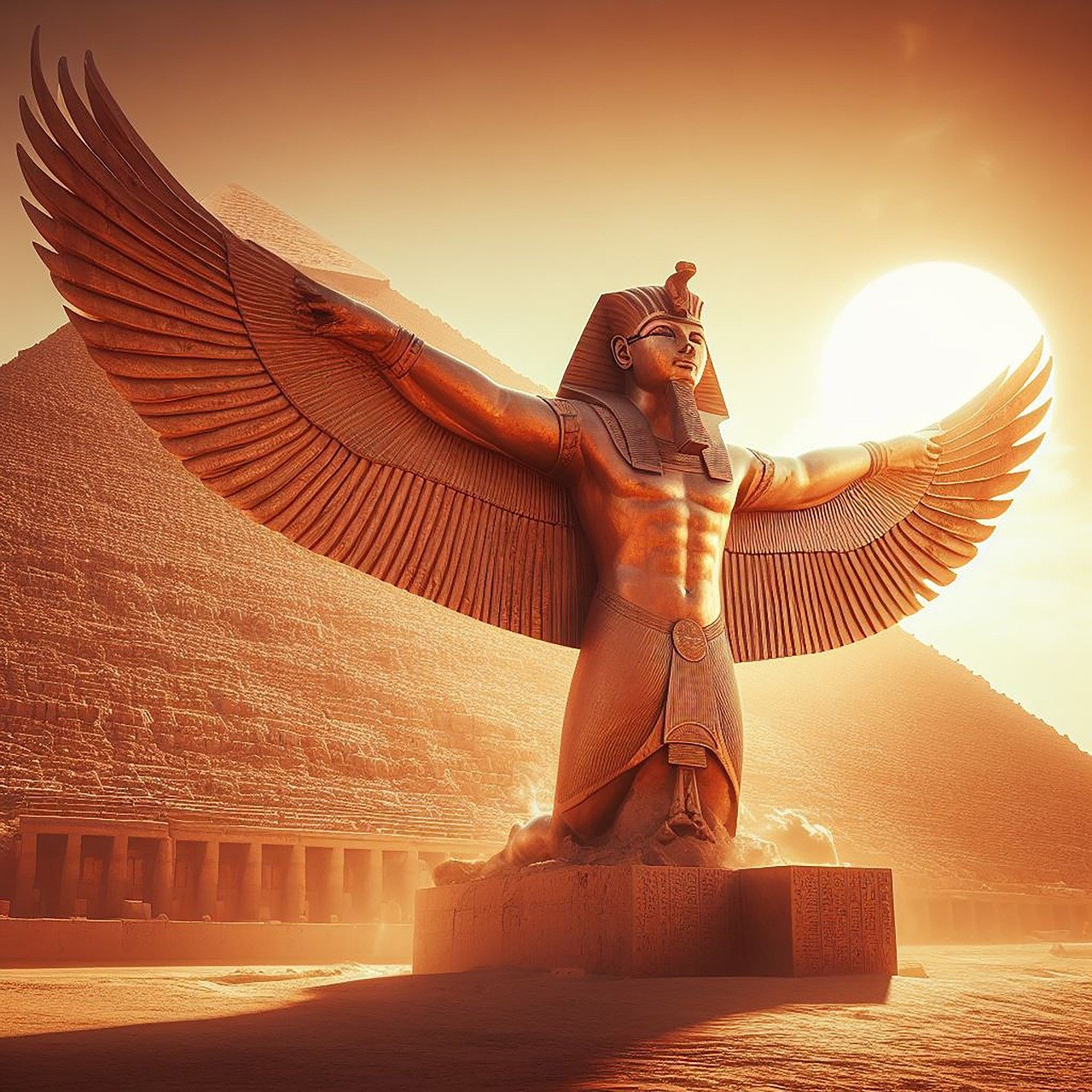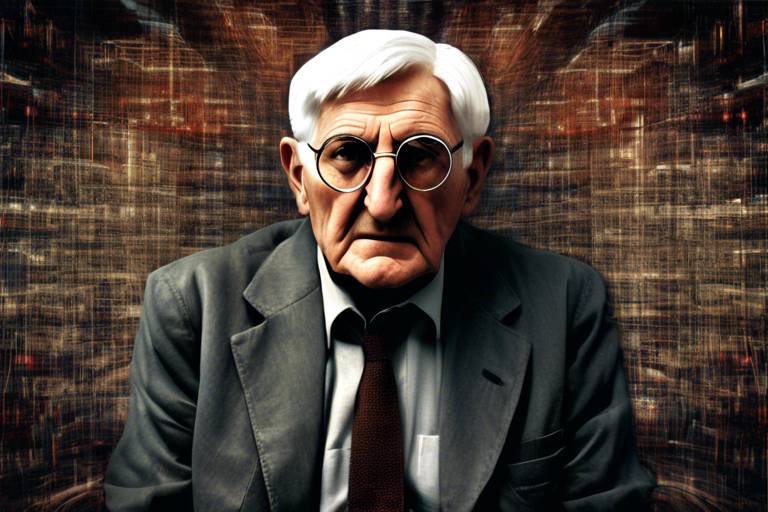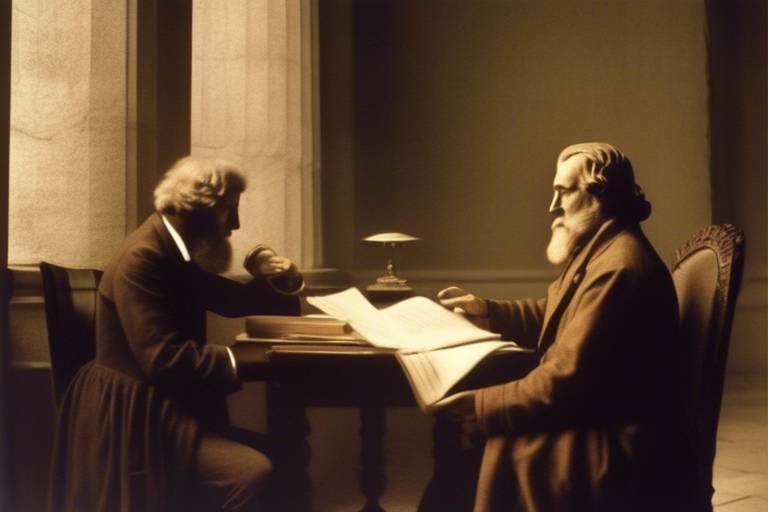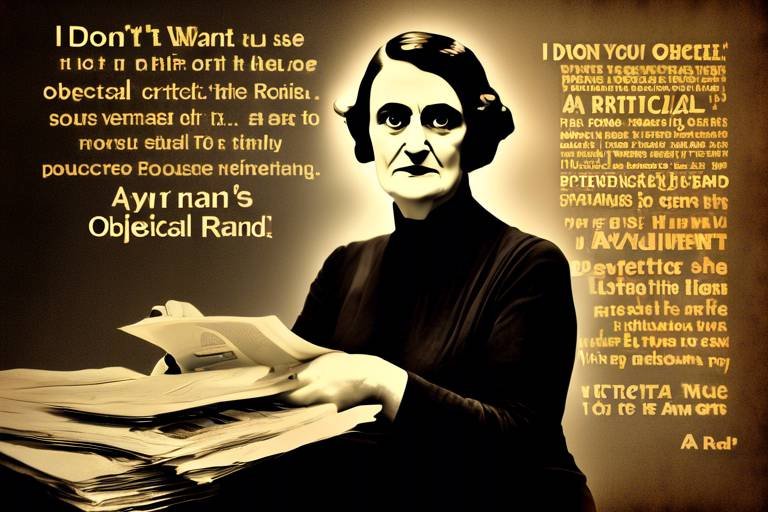The Ideas and Influence of Baruch Spinoza
Baruch Spinoza, a 17th-century philosopher, has left an indelible mark on the landscape of modern thought. His ideas are not just relics of the past; they resonate with contemporary issues, providing a framework for understanding ethics, politics, and the very nature of existence. Spinoza's philosophy invites us to question the conventional boundaries between God, nature, and humanity, urging us to see the interconnectedness of all things. Imagine a vast web, where every strand is essential to the whole; that’s the essence of Spinoza's vision. By redefining fundamental concepts, he challenges us to rethink our place in the universe and our relationships with one another.
His seminal work, Ethics, is not merely a philosophical treatise; it's a call to action. Spinoza's systematic approach to morality compels us to delve deep into our emotions and desires, revealing that understanding them is pivotal for leading a virtuous life. He emphasizes that our emotions, often seen as weaknesses, are instead powerful forces that can guide us toward greater self-awareness and ethical living. In a world where many feel disconnected, Spinoza's philosophy serves as a reminder that our individual lives are intricately woven into a larger tapestry.
Spinoza’s influence extends beyond philosophy into the realms of politics and religion. His advocacy for democracy and individual rights reflects a profound understanding of human nature and societal needs. He believed that a rational society is essential for human flourishing, and that freedom of thought and expression are vital for a just community. This perspective is particularly relevant today as we navigate the complexities of modern governance and social justice. In essence, Spinoza’s ideas challenge us to cultivate a society that respects individual rights while promoting collective well-being.
Moreover, Spinoza's unique view of God as synonymous with nature reshapes our understanding of spirituality. He posits that everything that exists is a manifestation of a single substance, which has profound implications for theology and philosophy. This radical rethinking encourages us to see divinity not as an external force but as an intrinsic part of our reality. It invites us to explore the ethical implications of living in harmony with nature, suggesting that true freedom and fulfillment come from aligning ourselves with the natural world.
In conclusion, Baruch Spinoza’s philosophical contributions are not just historical footnotes; they are vibrant threads in the fabric of contemporary thought. His ideas encourage us to embrace a holistic view of existence, where ethics, politics, and spirituality are interconnected. As we reflect on his teachings, we are reminded of the importance of understanding our emotions, advocating for democracy, and recognizing the unity of all things. Spinoza's legacy challenges us to live thoughtfully and ethically in a complex world, making his insights as relevant today as they were in the 17th century.
- Who was Baruch Spinoza?
Baruch Spinoza was a Dutch philosopher of Sephardi Portuguese origin, known for his work in ethics, politics, and epistemology.
- What is Spinoza's most famous work?
His most famous work is Ethics, where he presents his philosophical ideas in a geometric format.
- How did Spinoza view God?
Spinoza redefined God as synonymous with nature, proposing that everything that exists is a manifestation of this single substance.
- What impact did Spinoza have on modern philosophy?
Spinoza's ideas significantly influenced contemporary discussions about democracy, secularism, and human rights.

Spinoza's Philosophy of Substance
Baruch Spinoza's philosophy pivots around the revolutionary concept of substance, which serves as the bedrock of his entire philosophical system. At its core, Spinoza argues that there is only one substance, which he identifies with God or Nature. This radical viewpoint challenges the traditional dualistic separation between God and the universe, suggesting instead that everything we see and experience is interconnected and part of a singular reality. Imagine a vast ocean where every wave, every drop of water is not separate but rather a manifestation of the same body of water. In Spinoza's view, all of existence flows from this one substance, which he describes as self-caused, eternal, and infinite.
By positing that everything is a part of this single substance, Spinoza invites us to reconsider our understanding of existence and our place within it. This leads to a profound realization: if all things are interconnected and part of the same essence, then the distinctions we often make—between the divine and the mundane, or between different beings—are merely illusions. This perspective encourages a holistic view of reality, where understanding one part of the universe can lead to insights about the whole.
Spinoza's philosophy of substance also has significant implications for ethics and politics. If we accept that everything is interconnected, it follows that our actions and decisions impact not just ourselves but the entire web of existence. This interconnectedness fosters a sense of responsibility towards others and the environment, urging us to act in ways that promote harmony and understanding. To illustrate this, consider the following table that summarizes the key characteristics of Spinoza's substance:
| Characteristic | Description |
|---|---|
| Unity | All things are manifestations of one substance. |
| Self-Causation | This substance exists by necessity and causes itself. |
| Infinity | The substance is infinite and encompasses all that exists. |
| Interconnectedness | Everything is part of a single reality, influencing one another. |
Spinoza's ideas invite us to explore the implications of living in a world where everything is interconnected. It raises questions about our responsibilities toward each other and the environment. How can we live ethically in a world that is fundamentally one? What does it mean to understand our emotions and desires in the context of this interconnected reality? By embracing Spinoza's philosophy of substance, we can begin to see ourselves not as isolated beings but as integral parts of a vast, living tapestry.
In conclusion, Spinoza's philosophy of substance challenges us to rethink the nature of existence and our role within it. By understanding that we are all part of a single, unified reality, we can cultivate a deeper sense of connection with others and the world around us. This realization not only enriches our personal lives but also has the potential to transform society by promoting empathy, ethical behavior, and a commitment to the common good.

The Ethics of Spinoza
In his seminal work Ethics, Baruch Spinoza presents a groundbreaking approach to morality that resonates even today. He meticulously constructs a framework that emphasizes the significance of understanding our emotions and desires as a pathway to achieving a virtuous life. Spinoza's ethical philosophy is not just a theoretical exercise; it is an invitation to introspection and self-awareness. Imagine navigating through life with a clear map of your emotions—this is what Spinoza offers through his philosophical lens.
At the heart of Spinoza's ethics lies the notion that our emotions, often seen as chaotic and irrational, can actually be understood and managed through reason. He categorizes emotions into different types, shedding light on how they impact our decisions and actions. To Spinoza, emotions are not just fleeting feelings; they are integral to our very existence and understanding them is crucial for personal growth.
Spinoza proposes that by recognizing the nature of our emotions, we can achieve a state of equanimity, where we are not merely reactive beings but proactive participants in our lives. This leads to a more profound question: how do we cultivate this understanding? Spinoza suggests a few key practices:
- Self-Reflection: Regularly examining one's thoughts and feelings can unveil the underlying motivations behind our actions.
- Rational Analysis: Applying reason to our emotional responses allows us to differentiate between constructive and destructive feelings.
- Community Engagement: Interacting with others provides a mirror to our emotions and offers insights that we might overlook.
Moreover, Spinoza's ethics are grounded in a broader metaphysical framework where everything is interconnected. He argues that understanding our place in the universe enhances our capacity for empathy and compassion. When we see ourselves as part of a larger whole, our ethical responsibilities extend beyond individual well-being to encompass the welfare of others. This interconnectedness is what makes Spinoza's ethical philosophy not just relevant, but essential in today's fragmented world.
In essence, Spinoza's approach to ethics is a call to embrace our humanity fully. He challenges us to recognize that our emotions are not to be suppressed or ignored but understood and integrated into our decision-making processes. By doing so, we not only elevate our own lives but also contribute to a more harmonious society. The journey of understanding oneself, according to Spinoza, is the foundation for living a truly ethical life, one that is rich in meaning and connection.
- What is the main idea of Spinoza's Ethics? Spinoza's Ethics centers on understanding our emotions and desires as a pathway to achieving a virtuous life, emphasizing the importance of reason in managing our emotional experiences.
- How does Spinoza view emotions? Spinoza considers emotions as integral to our existence, advocating that understanding and managing them through reason leads to personal growth and ethical living.
- What role does interconnectedness play in Spinoza's ethics? Interconnectedness is crucial in Spinoza's ethics, as it encourages empathy and compassion, extending our ethical responsibilities beyond ourselves to the broader community.

Ethics,
In his seminal work Ethics, Baruch Spinoza presents a groundbreaking approach to understanding morality that challenges conventional wisdom. Rather than viewing ethics as a rigid set of rules imposed from above, Spinoza invites us to explore the intricate web of human emotions and desires that shape our actions. This philosophical journey is not just about the dos and don'ts of life; it's about truly understanding ourselves and the world around us. Imagine navigating a vast ocean of feelings, where each wave represents a different emotion, and your ability to steer your ship depends on your understanding of these currents.
Spinoza argues that **self-awareness** is crucial for achieving a virtuous life. He believes that when we understand our emotions, we can make better choices that align with our true nature. This perspective is revolutionary because it shifts the focus from external judgments of right and wrong to an internal compass that guides us through the complexities of existence. Think of it like tuning a musical instrument; when you know how to adjust the strings, you can create beautiful harmony instead of discord.
One of the most profound aspects of Spinoza's ethics is his redefinition of God. For him, God is not a distant deity who dictates moral laws; instead, God is synonymous with nature itself. This means that everything that exists is a manifestation of this single substance. Imagine walking through a forest, realizing that every tree, every creature, and even the air you breathe is part of a larger, divine tapestry. This interconnectedness has significant implications for how we view morality. If we are all part of the same reality, then our actions impact not just ourselves but the entire universe.
Spinoza's deterministic view challenges the traditional notion of free will. He posits that everything happens according to the necessity of the divine nature, meaning that our choices are influenced by a myriad of factors beyond our control. This perspective can be unsettling; however, it also offers a sense of liberation. By understanding that our desires and emotions are shaped by the same forces that govern the cosmos, we can learn to navigate our lives with greater acceptance and peace. In this light, ethical living becomes less about rigid adherence to rules and more about harmonizing with the natural order.
The ethical implications of Spinoza's philosophy are profound. Living in accordance with nature, as he suggests, is the path to true freedom and fulfillment. This means embracing our emotions but also using reason to guide our actions. It's like being in a dance; while you feel the rhythm of the music (your emotions), you must also stay aware of your partner (reason) to create a beautiful performance. By cultivating this balance, we can achieve a state of joy and serenity that transcends mere pleasure.
Spinoza's analysis of emotions provides a deep insight into human behavior. He categorizes emotions into active and passive, where active emotions arise from reason and lead to positive actions, while passive emotions stem from external influences and can lead to destructive behavior. Understanding this distinction is crucial for personal growth. Just as a gardener must learn to nurture the right plants while weeding out the unwanted ones, we too must cultivate our active emotions and manage the passive ones. This self-awareness allows us to take charge of our lives and make choices that reflect our true selves.
- What is Spinoza's main contribution to ethics?
Spinoza's main contribution lies in his emphasis on understanding emotions and desires as key elements in achieving a virtuous life, rather than adhering to external moral laws. - How does Spinoza redefine God?
Spinoza redefines God as identical to nature, suggesting that everything that exists is a manifestation of a single substance. - What is the significance of determinism in Spinoza's philosophy?
His deterministic view implies that our choices are influenced by the divine nature, challenging the traditional notion of free will while promoting acceptance of our circumstances. - How can understanding emotions improve our ethical decisions?
By recognizing the distinction between active and passive emotions, we can cultivate positive feelings and make choices that align with our true nature.

Spinoza presents a systematic approach to morality, arguing that understanding our emotions and desires is essential for achieving a virtuous life.
This article explores the philosophical contributions of Baruch Spinoza, his ideas on ethics, politics, and religion, and the lasting influence he has had on modern thought.
Spinoza's concept of substance is foundational to his philosophy, emphasizing the idea that everything is interconnected and part of a single reality, challenging traditional notions of God and nature.
In his seminal work Ethics, Spinoza presents a systematic approach to morality, arguing that understanding our emotions and desires is essential for achieving a virtuous life.
Spinoza redefined God as synonymous with nature, proposing that everything that exists is a manifestation of this single substance, which has profound implications for theology and philosophy.
Spinoza's deterministic view posits that everything happens according to the necessity of the divine nature, challenging the idea of free will and personal agency.
This understanding of God leads to ethical implications, suggesting that living in accordance with nature is the path to true freedom and fulfillment.
Spinoza's analysis of emotions highlights how they influence human behavior, advocating for the importance of reason in understanding and managing our emotional lives.
Spinoza's political thought emphasizes the importance of democracy and individual rights, arguing that a rational society is essential for human flourishing and social harmony.
He advocates for the separation of religious and political authority, promoting freedom of thought and expression as vital components of a just society.
Spinoza's ideas have significantly influenced contemporary political philosophy, particularly in discussions about secularism, democracy, and human rights.
Spinoza’s approach to morality is not just a theoretical framework; it’s a practical guide to living a fulfilling life. He believed that to achieve virtue, one must first understand the emotions and desires that drive human behavior. This understanding is akin to having a map when navigating through a complex city. Without it, one may easily get lost in the chaos of life.
At the heart of Spinoza’s ethics is the idea that emotions are not merely obstacles to rational thought; instead, they are integral to our existence. He posited that emotions can be categorized into two main types: active and passive. Active emotions arise from reason and lead to positive actions, while passive emotions stem from external influences and often result in negative outcomes. Thus, the journey to virtue involves transforming passive emotions into active ones.
To illustrate this, consider the following table that encapsulates Spinoza's view on emotions:
| Type of Emotion | Description | Impact on Life |
|---|---|---|
| Active | Emotions that arise from reason and understanding | Lead to virtuous actions and fulfillment |
| Passive | Emotions influenced by external factors | Can lead to confusion and negative outcomes |
Spinoza argued that by cultivating self-awareness and understanding the root causes of our emotions, we can harness them to guide our actions positively. This process involves a deep introspection where one asks, “Why do I feel this way?” and “What does this emotion reveal about my desires?” By answering these questions, individuals can align their actions with their true nature, ultimately leading to a more virtuous life.
Moreover, Spinoza emphasized that knowledge is power. The more we understand our emotions, the better equipped we are to make rational choices. This is where the connection between ethics and psychology becomes evident. When we recognize our desires and understand their origins, we can make choices that resonate with our true self, rather than being swayed by fleeting feelings or societal pressures.
In essence, Spinoza’s ethical framework is a call to action. It urges us to engage with our emotional lives actively and to seek knowledge about ourselves. This journey may not be easy, but it is undoubtedly rewarding. By embracing our emotions and desires, we can navigate the complexities of life with clarity and purpose, leading us to a more virtuous existence.
- Who was Baruch Spinoza?
Baruch Spinoza was a 17th-century philosopher known for his work in ethics, politics, and metaphysics. - What is Spinoza's view on God?
Spinoza redefined God as synonymous with nature, proposing that everything is a manifestation of a single substance. - How did Spinoza influence modern philosophy?
His ideas have significantly impacted discussions on secularism, democracy, and human rights. - What is the significance of understanding emotions according to Spinoza?
Understanding emotions is essential for achieving a virtuous life and making rational choices.

The Nature of God
Baruch Spinoza revolutionized the way we think about God by proposing a radical idea: that God is not a separate, transcendent entity but is instead synonymous with nature itself. This means that everything that exists, from the smallest pebble to the vast universe, is a manifestation of a single, infinite substance. Imagine looking at the world through a lens that reveals the interconnectedness of all things; this is the essence of Spinoza's philosophy. By redefining God in this manner, he challenges traditional theological views that often depict God as a distant overseer, intervening in human affairs. Instead, Spinoza invites us to see God as the very fabric of reality, woven into the essence of existence.
This perspective has profound implications for both theology and philosophy. If God is synonymous with nature, then understanding the world around us becomes a spiritual endeavor. It encourages us to seek knowledge and wisdom through the study of the natural world, as every discovery brings us closer to understanding the divine. Spinoza's God is not a deity to be feared or placated, but a reality to be embraced and explored. This idea can be both liberating and daunting. It suggests that we are not separate from the divine but are integral parts of it, encouraging a sense of unity with the universe.
To further illustrate Spinoza’s view, consider the following key points:
- Immanence vs. Transcendence: Spinoza's God is immanent, meaning that God exists within the universe and is present in every aspect of nature, rather than being a distant, transcendent being.
- Unity of Substance: Everything that exists is a part of one single substance, which Spinoza calls "God or Nature" (Deus sive Natura). This challenges dualistic views that separate God from the material world.
- Ethical Implications: Understanding God as nature leads to a more ethical approach to life, as it emphasizes living in harmony with the natural world and recognizing our interconnectedness.
Spinoza's redefinition of God also leads to a deterministic worldview, which posits that everything happens according to the necessity of this divine nature. This perspective raises compelling questions about free will and personal agency. If everything is determined by the laws of nature, then how do we fit into this grand scheme? Spinoza argues that true freedom comes not from the illusion of choice but from understanding our place within the natural order. By aligning our desires with the rational understanding of nature, we can achieve a sense of fulfillment and peace.
In conclusion, Spinoza's conception of God invites us to rethink our relationship with the divine and the universe. It challenges us to embrace a holistic view of existence, where spirituality is intertwined with the natural world. This radical shift in thinking has not only influenced philosophical discourse but has also opened up new avenues for understanding ethics, human behavior, and our role in the cosmos. As we delve deeper into Spinoza's ideas, we find a rich tapestry of thought that encourages us to explore the profound connections between ourselves, nature, and the divine.
1. What does Spinoza mean by "God or Nature"?
Spinoza uses the term "God or Nature" to express his belief that God is not a separate entity but is the same as the natural world. Everything that exists is a manifestation of this single substance.
2. How does Spinoza's view of God differ from traditional religious views?
Traditional views often see God as a transcendent being who intervenes in the world, while Spinoza sees God as immanent, meaning God is present in all aspects of nature and the universe.
3. What are the ethical implications of Spinoza's philosophy?
Spinoza's philosophy suggests that by understanding our place within nature and aligning our desires with rational thought, we can achieve true freedom and fulfillment.

God and Determinism
Baruch Spinoza's view on God and determinism is nothing short of revolutionary. He proposed that God is not a distant, anthropomorphic deity, but rather synonymous with nature itself. This radical rethinking of God leads to a deterministic worldview where everything occurs according to the necessity of the divine nature. Imagine a grand clockwork universe where every cog and wheel is interconnected, moving in perfect harmony. In Spinoza's philosophy, this clockwork is God, and every event is a necessary outcome of the laws governing this divine mechanism.
Spinoza argues that if everything is part of a single substance, then every action, thought, and emotion is predetermined by the nature of that substance. This perspective challenges our conventional understanding of free will. We often like to think of ourselves as autonomous beings, capable of making choices independent of external influences. However, Spinoza invites us to reconsider this notion. He suggests that our choices are not as free as we believe; instead, they are the result of a complex interplay of causes and effects that stretch back through time.
To illustrate this idea, consider the following analogy: if life is a river, then our choices are like leaves floating on its surface. While it may seem that the leaves are free to drift in any direction, they are ultimately at the mercy of the current. Similarly, our desires and decisions are shaped by the flow of the universe, influenced by our experiences, emotions, and the greater forces at play.
This deterministic perspective has profound implications for ethics and morality. If our actions are determined by the necessity of nature, then the concept of moral culpability becomes more complex. How can we hold someone accountable for actions that were, in essence, predetermined? Spinoza does not shy away from this challenge; instead, he emphasizes the importance of understanding our emotions and desires. By gaining insight into the underlying causes of our behavior, we can cultivate a more virtuous life, aligned with the rational understanding of our place in the universe.
In summary, Spinoza's view of God and determinism reshapes our understanding of existence. It invites us to see ourselves as part of a larger whole, interconnected with the cosmos. While it may challenge our notions of free will, it also offers a path to deeper self-awareness and ethical living. By recognizing the deterministic nature of reality, we can strive to live in harmony with the world around us, embracing the beauty of existence as it unfolds.
- What is Spinoza's view of God?
Spinoza redefined God as synonymous with nature, viewing everything that exists as a manifestation of a single substance. - How does Spinoza's determinism affect free will?
Spinoza's deterministic view suggests that our actions are predetermined by the necessity of nature, challenging traditional notions of free will. - What are the ethical implications of Spinoza's philosophy?
Understanding our emotions and desires is crucial for achieving a virtuous life, according to Spinoza. - How does Spinoza influence modern thought?
His ideas have significantly impacted contemporary discussions on secularism, democracy, and human rights.

Ethical Implications
Baruch Spinoza's redefinition of God as synonymous with nature opens up a fascinating dialogue about ethics and morality. When we consider that everything is a manifestation of this single substance, we begin to understand the implications this has for how we live our lives. Spinoza challenges us to rethink our ethical frameworks, moving away from traditional religious dogmas and towards a more integrated view of existence. By recognizing that we are all part of a larger whole, we are encouraged to act in ways that promote harmony and understanding.
One of the key ethical implications of Spinoza's philosophy is the idea that true freedom comes from living in accordance with nature. This perspective suggests that our actions should not be dictated by arbitrary moral codes but instead should reflect a deeper understanding of ourselves and our place in the universe. In this light, ethical behavior is not merely about following rules; it’s about aligning our desires and actions with the natural order of things. When we act in harmony with our true nature, we find fulfillment and peace.
Moreover, Spinoza's deterministic view posits that everything is interconnected, which means that our actions have consequences that ripple through the fabric of reality. This understanding compels us to take responsibility for our choices, as they contribute to the overall well-being of the community. When we harm others, we are, in essence, harming ourselves. Therefore, ethical living becomes a path to not only personal freedom but also to collective flourishing.
To illustrate this point, consider the following ethical principles derived from Spinoza's philosophy:
- Interconnectedness: We must recognize that our lives are intertwined with others, urging us to act with compassion and empathy.
- Reason over Passion: By understanding our emotions through reason, we can make more informed and ethical choices.
- Natural Law: Our actions should align with the laws of nature, promoting sustainability and harmony.
In summary, the ethical implications of Spinoza's thought encourage us to embrace a holistic view of existence where our moral choices reflect the interconnected reality of life. By fostering a deeper understanding of ourselves and the world around us, we can cultivate a more ethical and fulfilling life.
- What is Spinoza's view on free will?
Spinoza argues that free will is an illusion; our actions are determined by the necessity of nature and our understanding of it.
- How does Spinoza define ethics?
For Spinoza, ethics is about living in accordance with nature, which involves understanding our emotions and aligning our actions with the greater good.
- What role do emotions play in Spinoza's philosophy?
Emotions are central to Spinoza's ethical framework. He believes that by understanding and managing our emotions through reason, we can lead more virtuous lives.
- How does Spinoza's philosophy influence modern ethics?
Spinoza's emphasis on interconnectedness and rationality continues to resonate in contemporary discussions about ethics, particularly in areas like environmental ethics and social justice.

Emotions and Human Behavior
Baruch Spinoza's exploration of emotions is not just a philosophical exercise; it's a deep dive into the very essence of what it means to be human. He believed that emotions, or affects as he often referred to them, are fundamental to our understanding of ourselves and our interactions with the world. Imagine emotions as the colors on an artist's palette—each one plays a role in painting the complex picture of our behavior. Spinoza argued that to live a truly virtuous life, we must first understand these emotions and how they influence our actions.
At the heart of Spinoza's philosophy is the idea that our emotions are not merely irrational impulses; they are shaped by our thoughts and experiences. He posited that by using reason, we can gain insight into our emotional states, allowing us to manage them more effectively. This is akin to being a skilled captain navigating through stormy seas; with the right knowledge and tools, we can steer our ship away from the dangers that emotions can sometimes present.
Spinoza categorized emotions into two main types: active and passive. Active emotions arise from a clear understanding of our desires and the fulfillment of those desires, leading to joy and satisfaction. On the other hand, passive emotions stem from external influences and can often lead to confusion and frustration. To illustrate this, consider the following table:
| Type of Emotion | Description | Outcome |
|---|---|---|
| Active Emotions | Emotions that arise from our own understanding and actions. | Joy, Satisfaction |
| Passive Emotions | Emotions influenced by external factors beyond our control. | Confusion, Frustration |
This distinction is crucial because it highlights the importance of self-awareness in our emotional lives. By recognizing when we are experiencing active versus passive emotions, we can make more informed choices about how to respond. Spinoza believed that this self-awareness leads to greater freedom—the freedom to act in accordance with our true nature rather than being swept away by external circumstances.
Furthermore, Spinoza emphasized that understanding our emotions is not just about personal well-being; it's also about improving our relationships with others. When we recognize our emotional triggers and learn to manage them, we become better equipped to empathize with those around us. This creates a ripple effect, fostering a more harmonious society. Imagine a world where people are more in tune with their emotions and those of others—conflict would diminish, and understanding would flourish.
In essence, Spinoza's insights into emotions and human behavior remind us that our feelings are not just fleeting experiences; they are integral to our existence. By embracing reason and self-awareness, we can transform our emotional lives, leading to a more fulfilling and connected human experience. So, the next time you find yourself grappling with a strong emotion, remember Spinoza's wisdom: take a step back, analyze it, and use it as a stepping stone toward personal growth.
- What are Spinoza's views on emotions? Spinoza believed that emotions are a crucial part of human experience and that understanding them is essential for living a virtuous life.
- How did Spinoza categorize emotions? He categorized emotions into active and passive, emphasizing the importance of self-awareness in managing them.
- Can Spinoza's philosophy help in modern psychology? Yes, many of his ideas about emotions and reason are still relevant and can provide insights into emotional intelligence and mental health today.

Political Philosophy
Baruch Spinoza's political philosophy is a treasure trove of insights that resonate even in today's world. His ideas challenge us to rethink the structures of power, governance, and individual rights. At the heart of Spinoza's political thought is the belief that a rational society is not just a lofty ideal but a necessity for human flourishing. He argued that the state should be a reflection of the collective will of the people, promoting democracy as a means to ensure that each individual's voice is heard and valued. Can you imagine a society where every person has a say? Spinoza believed that this was not only possible but essential for a harmonious existence.
One of the standout elements of Spinoza's political philosophy is his advocacy for the separation of church and state. He recognized that intertwining religious authority with political power could lead to oppression and conflict. By promoting freedom of thought and expression, Spinoza laid the groundwork for a more just society. His ideas urged individuals to think critically and independently, free from the constraints of dogma. This separation allowed for a political landscape where ideas could flourish, and diverse perspectives could coexist. Imagine a world where your beliefs don't dictate your rights—this was the vision Spinoza championed.
Spinoza's thoughts on democracy were revolutionary for his time. He believed that a government should be accountable to its citizens, and that the welfare of the people should be its primary concern. In his view, a rational society is one that prioritizes the common good over individual ambition. This perspective is particularly relevant today, as we grapple with issues of inequality and social justice. Spinoza's emphasis on collective well-being encourages us to ask ourselves: Are our leaders truly representing us? Are our systems designed to uplift everyone, or just a select few?
To further understand Spinoza’s influence, let’s break down some key aspects of his political philosophy:
- Democracy: Spinoza argued that a democratic system is essential for the flourishing of individuals and society as a whole.
- Individual Rights: He emphasized the importance of protecting individual rights as a foundation for social harmony.
- Rational Governance: Spinoza believed that decisions should be made based on reason and the common good, rather than on tradition or authority.
Spinoza's political philosophy has left a lasting mark on modern thought. His ideas about democracy, secularism, and human rights have influenced countless thinkers and movements throughout history. From the Enlightenment to contemporary discussions about civil liberties, Spinoza's vision continues to inspire those who advocate for a more equitable world. His work invites us to reflect on our own political systems and consider how we can strive for a society that genuinely values every individual.
1. What is Spinoza's view on democracy?
Spinoza believed that democracy is essential for human flourishing and that a government should reflect the collective will of its people.
2. How does Spinoza define individual rights?
He emphasized the protection of individual rights as fundamental to creating a just society where everyone can thrive.
3. Why is the separation of church and state important according to Spinoza?
Spinoza argued that separating religious authority from political power prevents oppression and allows for freedom of thought and expression.
4. In what ways has Spinoza influenced modern political thought?
His ideas have shaped discussions around secularism, democracy, and the importance of individual rights, influencing various political movements and philosophies.

Separation of Church and State
Baruch Spinoza was a true visionary when it came to the concept of . He believed that for a society to thrive, it must free itself from the shackles of religious authority in political matters. Imagine a world where the government is no longer influenced by religious dogma—sounds like a breath of fresh air, right? Spinoza argued that this separation was not just beneficial but essential for a just society where freedom of thought and expression could flourish.
In his view, when religious institutions have power over the state, it leads to a myriad of problems, including oppression, conflict, and a stifling of individual rights. He posited that a rational society, one where laws and policies are based on reason rather than religious beliefs, is crucial for human flourishing. This idea was radical for his time and paved the way for modern democratic principles. Spinoza's insistence on the importance of rational discourse over religious doctrine is a cornerstone of contemporary political philosophy.
To illustrate the impact of Spinoza's thoughts on the separation of church and state, consider the following table that summarizes key points:
| Key Concept | Spinoza's View | Modern Implication |
|---|---|---|
| Authority | Religious authority should not dictate political laws. | Secular governance promotes freedom and equality. |
| Freedom of Thought | Individuals should be free to express and explore beliefs. | Encourages diverse perspectives in public discourse. |
| Rational Society | Decisions should be based on reason, not faith. | Fosters a culture of critical thinking and progress. |
Spinoza’s philosophy suggests that when the state is free from religious influence, it can better serve the interests of all its citizens, regardless of their beliefs. This notion resonates deeply in today's discussions about secularism and human rights. The idea that everyone should have the right to their own beliefs without those beliefs infringing on the rights of others is a fundamental aspect of modern democracy.
In conclusion, Spinoza's advocacy for the separation of church and state not only challenged the status quo of his time but also laid the groundwork for the democratic ideals we cherish today. His thoughts encourage us to reflect on the importance of maintaining a clear boundary between religious and political spheres to ensure a society where freedom and justice can thrive.
- What did Spinoza mean by the separation of church and state?
Spinoza believed that religious authority should not interfere with political governance, promoting a society based on reason and freedom of thought. - How did Spinoza's ideas influence modern democracy?
His advocacy for rational discourse over religious dogma laid the groundwork for principles such as secularism and individual rights in contemporary political philosophy. - Why is the separation of church and state important?
This separation ensures that laws and policies are made based on reason and equality, rather than religious beliefs, fostering a more just and inclusive society.

Influence on Modern Political Thought
Baruch Spinoza's impact on modern political thought is nothing short of revolutionary. His ideas, which emerged in the 17th century, resonate powerfully even today, shaping discussions around democracy, individual rights, and the role of religion in public life. Spinoza dared to challenge the prevailing norms of his time, advocating for a rational approach to governance that prioritizes human flourishing over dogmatic adherence to tradition.
One of Spinoza's most significant contributions is his advocacy for the separation of church and state. He argued that political authority should not be tethered to religious beliefs, a concept that has become a cornerstone of modern democratic societies. This separation is crucial for ensuring that individuals can freely express their thoughts and beliefs without fear of persecution. In a world where religious conflicts often lead to violence and division, Spinoza's vision of a secular state remains profoundly relevant.
Moreover, Spinoza's emphasis on rationality and reason in governance laid the groundwork for contemporary discussions about democracy. He posited that a rational society is essential for achieving social harmony and that individuals should have a voice in the political process. This idea paved the way for modern democratic principles, where the participation of citizens is not just encouraged but considered fundamental. Spinoza believed that when individuals are allowed to express their opinions and participate in decision-making, it leads to a more just and equitable society.
To illustrate the lasting influence of Spinoza's political philosophy, consider the following table that highlights key aspects of his thought and their modern implications:
| Spinoza's Ideas | Modern Implications |
|---|---|
| Separation of Church and State | Foundation of secularism in democracies |
| Emphasis on Reason | Promotion of rational discourse in politics |
| Individual Rights | Advocacy for human rights and freedoms |
| Democratic Participation | Encouragement of civic engagement and activism |
Spinoza's influence extends beyond philosophy into the realms of political activism and social movements. His ideas have inspired countless thinkers and leaders who advocate for civil liberties and human rights. For instance, movements aimed at promoting equality and justice often draw upon Spinoza's belief that a society should be structured to serve the needs of its people, rather than the interests of a select few.
In essence, Baruch Spinoza was not just a philosopher; he was a visionary who foresaw the potential for a society built on reason, equality, and freedom. His legacy continues to challenge us to rethink our political structures and strive for a world where every individual can thrive. As we navigate the complexities of modern governance, Spinoza's insights serve as a guiding light, urging us to embrace rationality and inclusivity in our collective pursuit of a better society.
- What is Spinoza's main philosophical contribution? Spinoza's main contribution is his concept of substance, where he argues that everything is interconnected and part of a single reality.
- How did Spinoza view God? Spinoza redefined God as synonymous with nature, suggesting that everything that exists is a manifestation of this single substance.
- What are the ethical implications of Spinoza's philosophy? His philosophy suggests that understanding our emotions and living in accordance with nature leads to true freedom and fulfillment.
- Why is the separation of church and state important? It allows for freedom of thought and expression, preventing religious authority from influencing political decisions.
- How does Spinoza influence modern political thought? His ideas on democracy, individual rights, and rational governance continue to shape contemporary discussions on human rights and social justice.
Frequently Asked Questions
- What is Spinoza's philosophy of substance?
Spinoza's philosophy of substance revolves around the idea that everything in existence is interconnected and part of a single reality. He challenges traditional views of God and nature by proposing that there is only one substance, which is God or nature itself. This radical idea reshapes our understanding of existence and our place within it.
- How does Spinoza define ethics?
In his seminal work, Ethics, Spinoza presents a systematic approach to morality. He argues that understanding our emotions and desires is crucial for achieving a virtuous life. By recognizing the influence of our emotions, we can better navigate our moral choices and align our actions with reason.
- What are Spinoza's views on God?
Spinoza redefines God as being synonymous with nature. He suggests that everything that exists is a manifestation of this single substance. This view has profound implications for theology, as it challenges the conventional understanding of God as a separate entity, instead presenting a more immanent and interconnected vision of divinity.
- What does Spinoza say about free will?
Spinoza's deterministic perspective posits that everything occurs according to the necessity of divine nature. This challenges the traditional notion of free will, suggesting that our choices are determined by the natural order of the universe. Understanding this can lead to a deeper comprehension of human behavior and the role of reason in our lives.
- How does Spinoza's philosophy relate to emotions?
Spinoza emphasizes the importance of understanding emotions in human behavior. He believes that by using reason to analyze our emotions, we can manage them better and lead more fulfilling lives. This focus on emotional intelligence is a cornerstone of his ethical framework.
- What is Spinoza's stance on political philosophy?
In his political thought, Spinoza advocates for democracy and individual rights. He argues that a rational society is essential for human flourishing and social harmony. His ideas promote the notion that freedom of thought and expression should be fundamental components of a just society.
- How does Spinoza view the separation of church and state?
Spinoza strongly supports the separation of religious and political authority. He believes that this separation is vital for ensuring freedom of thought and expression, which are essential for a healthy and just society. By keeping these institutions distinct, individuals can pursue their beliefs without fear of oppression.
- What is Spinoza's influence on modern political thought?
Spinoza's ideas have significantly shaped contemporary political philosophy, especially in discussions surrounding secularism, democracy, and human rights. His emphasis on rational governance and the importance of individual freedoms continues to resonate in today's political discourse.



















